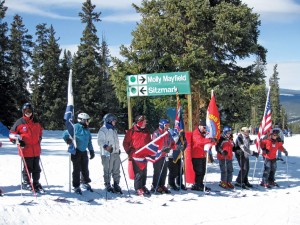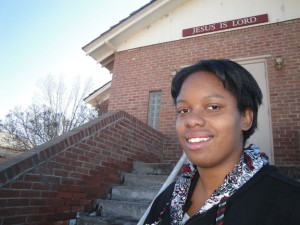Susan Tweit
Recently, I had a sobering realization: I’ve been half of a couple essentially all of my adult life, or almost two-thirds of my years.
There’s nothing wrong with spending your life as part of a healthy and nurturing couple, if you can find that gig. My time with my late husband, Richard Cabe, was certainly all of that and more.
Still, here I am 55 years old, having been married almost 29 years to Richard and over three to my first husband. Do the math, and you can see that I basically have no practice in living alone.
Which sounds odd to my ears. I’ve always thought of myself as independent and capable.
I am both (some would say stubbornly so!). For example, here’s my daily routine:
Get up at quarter to six and open the blinds to check the sky. (I live in a house heated by the sun. No sun means I have to use my supplemental heat source: a woodstove.)
Today, clouds masked the sky. So I put my bathrobe over my pjs, cleaned the window on the stove, raked the ashes into the ash pan, carried the ash-pan out to dump into the metal bucket on the back porch, and then chopped kindling and firewood, and made a fire.
Then I checked the temperature in Richard’s 1,700-square-foot studio building to make sure it was warm enough to keep the pipes from freezing (it was, so I didn’t have to build a fire in the woodstove there).
I did my morning yoga routine, cooked my hot breakfast cereal (which I had measured out and started soaking earlier), steamed my hot chocolate, and got on with the day.
Which included working on the most urgent writing deadlines, attending a development review meeting with city and county officials, replacing an attic vent blown askew by the winds, fixing a broken window-blind cord, paying bills, filling out yet another after-death form (I swear that paperwork is the only thing eternal about our lives!), answering what seemed like a thousand emails and a few phone calls too, and calling my dad and working through his computer problems on the phone.
Oh, and making my own lunch and dinner too.
Once I would have had Richard’s help with all of the above tasks (except writing). I can do many of the things he used to –thought not necessarily as well, but I don’t have his “object manipulation gene,” the ability to look at a building, tool, appliance or a boulder and understand its essence, how it works.
And I’m not big and brawny either.
But I am smart, determined (some would “stubborn” again), and I have friends and neighbors who are happy to help. (You are all, indeed, wonderful.)
Still, at the end of the day – and the beginning, in the middle of the night when I wake worried, and much of the time in between, I’m alone. On my own with whatever decisions, fears, challenges, and issues that arise. That’s new.
When Richard was alive, we worked through most everything together. Sometimes that made things difficult, but we always worked it out.
Even in the last month of his life when he was bedridden and frustrated that he couldn’t do the things he had always done, we talked everything over. His brain might have been riddled by the glioblastoma that killed him, but his mind never lost its brilliant ability to see a problem and solve it.
Now he’s gone. At first I assumed I would simply continue on the path we walked together.
But since his death blew a hole in my life, I have come to understand that gave me an opportunity I neither wanted nor anticipated: I’m no longer part of a pair.
Instead, I’m “Woman Alone,” the name bestowed by tribal elders on one of Margaret Coel’s main characters in her Wind River Reservation series.
In the novel, Woman Alone is not necessarily meant as a compliment. But it could be.
I prefer that title to “widow,” a word that comes from an Indo-European root for “empty.” Just because I’m without a man, and specifically, without the great love of my life, does not make me empty. At all.
When Richard was healthy (the majority of his life), our path together was a matter of mutual adjustment to reconcile sometimes divergent needs. After his bird visions revealed brain cancer, our direction was guided by helping him live well for as long as possible.
Now I’m alone, charting a solo life-path. I’m walking it mindfully, aware of the grace in this ephemeral gift of life.
Award-winning writer Susan J. Tweit is the author of WALKING NATURE HOME, A LIFE’S JOURNEY, and 11 other books, and can be contacted through her blog & web site, susanjtweit.com


